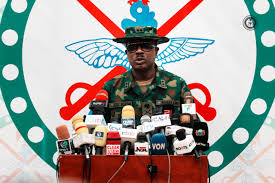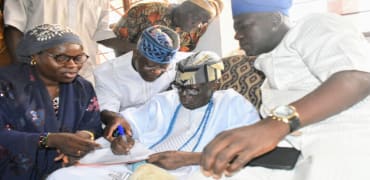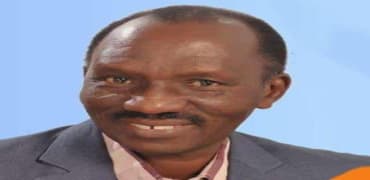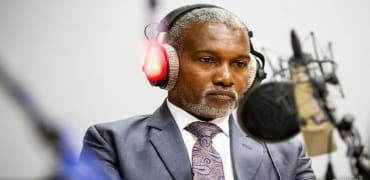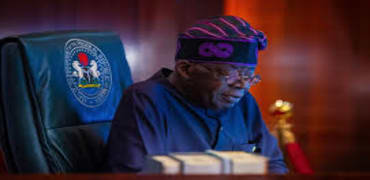Foreign Fighters Fueling Terror: DHQ Blames Influx for Northwest, Northeast Attacks
Foreign Fighters Fueling Terror: DHQ Blames Influx for Northwest, Northeast Attacks
By Achimi muktar
The Nigerian Defence Headquarters (DHQ) has linked the recent surge in terrorist attacks in the country’s Northeast and Northwest regions to an influx of foreign fighters, warning of the dire implications for national security.
According to Major General Edward Buba, Director of Defence Media Operations, these foreign reinforcements, originating from the Sahel region, are bolstering terrorist groups with the aid of local collaborators who provide critical intelligence on troop movements.
The Reality of Foreign Influence
Addressing the press in Abuja, General Buba highlighted the role of local informants in undermining military operations, further complicating efforts to combat terrorism.
“Increased terror attacks can be attributed to the arrival of foreign fighters acting as reinforcements for these groups,” Buba said. “These fighters, supported by local informants, exploit our vulnerabilities, but our troops remain resolute in breaking the will of these terrorists.”
The military has ramped up operations against insurgents, reporting the neutralization of 156 terrorists and the arrest of 464 suspects in the past week. Additionally, troops rescued 181 kidnapped victims and dismantled illegal oil facilities in the Niger Delta, recovering millions of litres of stolen crude oil and refined products.
Zulum Warns Against Local Collaboration
Governor Babagana Zulum of Borno State has issued a stern warning to farming and fishing communities in the insurgency-prone Baga area, cautioning against aiding insurgents. Speaking at the palace of the District Head, Zulum described such acts as grave threats to the region’s stability.
“Collaborating with insurgents jeopardizes peace and security,” Zulum said. “Residents must only engage in farming and fishing activities in areas authorized by the military.”
A United Front Against Insurgency
The recent attacks, including the January 6 massacre in Borno State that claimed over 40 lives, including soldiers, have prompted President Bola Tinubu to order a comprehensive probe. Similar incidents in Sokoto and Katsina states underscore the urgency of the security crisis.
In Katsina, Governor Dikko Radda condemned an attack on the Kankara General Hospital, pledging to bring the perpetrators to justice. “This assault on healthcare workers and patients reveals the cruelty of these bandits. We will not tolerate any threat to our healthcare system or those who protect it,” Radda asserted.
UN and Defence Ministry React
The United Nations has strongly condemned the violence in Borno State, with Mohamed Fall, the Humanitarian Coordinator in Nigeria, calling for accountability. “The armed actors responsible for this heinous attack must be identified and brought to justice,” Fall said, emphasizing the persistent dangers faced by civilians in conflict-ridden areas.
Meanwhile, Minister of State for Defence Bello Matawalle has reiterated the need for modern military equipment, arguing that the current budget is insufficient to address the nation’s security challenges.
“With the right tools, we can decisively confront these threats and secure a better future for Nigeria,” Matawalle told lawmakers while defending the ministry’s 2025 budget proposal.
The Road Ahead
The military remains committed to a long-term strategy to dismantle terrorist networks, focusing on neutralizing operatives, disrupting logistics, and applying international pressure.
As General Buba put it, “This war is not a quick fix but an enduring operation. Security is everyone’s responsibility, and we must not compromise it.”
The renewed push for collective action—from military operations to community cooperation—offers hope for curbing terrorism, but achieving lasting peace will require sustained commitment on all fronts.



